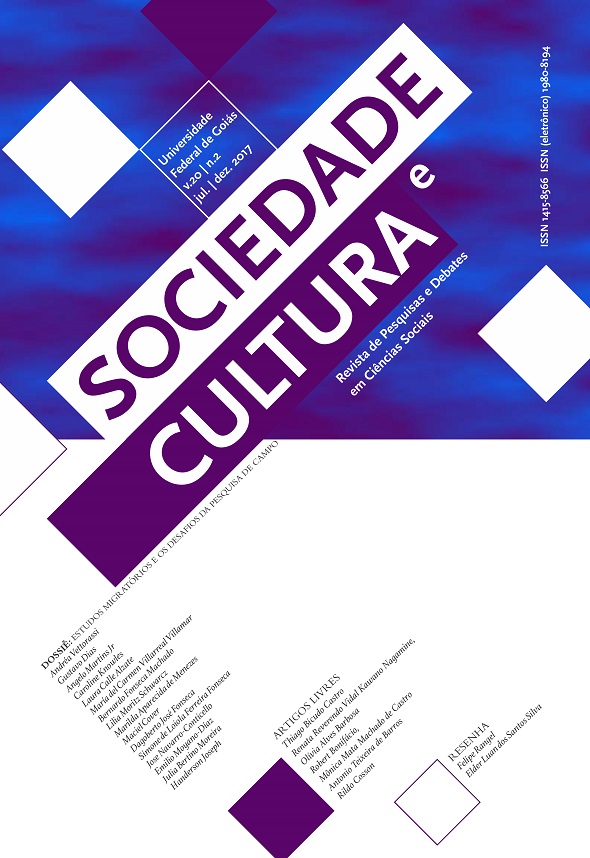Homossexualidade, religião e direitos: a controvérsia sobre o Estatuto da Família no Brasil
DOI:
https://doi.org/10.5216/sec.v20i2.53073Abstract
Neste artigo, propomos analisar as estratégias discursivas e escolhas normativas de deputados federais formal ou ideacionalmente ligados às assim chamadas ‘igrejas tradicionais’ no debate público acerca do projeto de lei nº 6.583, de 2013, conhecido como Estatuto da Família. Observamos que as disputas entre essas forças e atores políticos seculares têm encontrado um terreno fértil na Câmara dos Deputados. Pressupomos que as diferenças, as potencialidades e o debate acerca do Estatuto da Família permitem refletir sobre o lugar dos direitos e da religião
no espaço público brasileiro. Recorre-se a uma literatura
antropológica sobre religião para compreender o estatuto do
religioso no espaço público brasileiro e, para analisar as falas
coletadas, também são usados escritos recentes de Nadia Urbinati sobre o tema, a qual o discute desde o domínio da teoria política. Trata-se de um artigo resultante de pesquisa qualitativa, que empregou como técnicas para coleta de dados a pesquisa documental e a revisão bibliográfica.
Downloads
Downloads
Published
How to Cite
Issue
Section
License
Authors who publish in this journal agree to the following terms:
- Authors retain the copyright and grant the journal the right of first publication, the work being simultaneously licensed under the Creative Commons Attribution License, which allows the sharing of the work with acknowledgment of authorship and of the initial publication in this journal;
- Authors are authorized to enter into additional contracts separately, for non-exclusive distribution of the version of the work published in this journal (eg, publishing in an institutional repository or as a book chapter), with acknowledgment of authorship and of the initial publication in this journal;
- Authors are allowed and encouraged to post and distribute their work online (eg, in institutional repositories or on their personal page) at any point before or during the editorial process, as this can bring productive change as well as increases the impact and the citation of the published work (see O Efeito do Acesso Livre).



